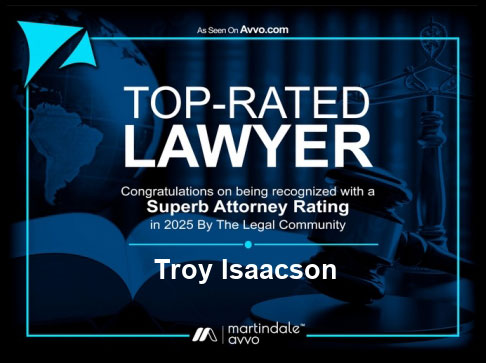ISAACSON LAW BLOG
An Association’s Obligation To Prevent Discrimination Under The Fair Housing Act

An Association’s Obligation To Prevent Discrimination Under The Fair Housing Act
Rooting out discriminatory practices has long been a goal in our Country and is largely the ideal upon which our nation was founded. After all, the original English settlers came to this land seeking to avoid religious persecution.
In furtherance of those efforts to root out discrimination in all its forms, in 2016 Congress amended the provisions of the Fair Housing Act (“FHAct”), to bolster the liability of individuals for discriminatory housing practices against protected classes of people. However, those provisions did not only target those individuals who actively engage in discriminatory conduct, but also were amended to include those who have the power to prevent discriminatory housing practices by third parties.
More specifically, in amending the FHAct, Congress included the following provision:
A person is directly liable for:
Failing to take prompt action to correct and end a discriminatory housing practice by a third-party, where the person knew or should have known of the discriminatory conduct and had the power to correct it. The power to take prompt action to correct and end a discriminatory housing practice by a third-party depends upon the extent of the person’s control or any other legal responsibility the person may have with respect to the conduct of such third-party.
24 CFR § 100.7. Stated differently, if an association, its Board or management has power to end a discriminatory housing practice by a third party, they must take action. However, that action cannot penalize the individual at which the discrimination is being directed. Id.
For homeowners’ associations such action will largely fall to the community’s harassment policies which are often set forth in the Declaration of Covenants, Conditions & Restrictions (“Declaration”) and/or Rules & Regulations.
Any action taken by the Association to correct and end discriminatory practices by a third party must be prompt and may include issuing violation notices, suspending privileges, mediating disputes, and even litigation to seek injunctive relief against the offending resident. Failure to do so could result in claims that board members have created a hostile environment and are liable related to the dispute or discrimination. If there is even the appearance of a discriminatory act, the Association must take swift action to correct the situation. Doing so will help you avoid any claims of third-party discrimination.
In this regard, the Department of Housing and Urban Development (“HUD”), recommends that Association boards consider a proactive approach by educating homeowners about the FHAact and types of discrimination they should be aware of, act promptly to address complaints from residents, mediate disputes between residents, and use enforcement provisions under bylaws to end discriminatory conduct within the Association. As a starting point, your community should work with its Community Association Manager and Legal Counsel to develop Policies & Procedures as well as enforceable Rules & Regulations regarding discriminatory and harassing conduct. We recommend that those Policies & Procedures and Rules & Regulations further be reviewed on an annual basis to ensure they are working for your community.

LOCATION
- (702) 529-2559
- 4730 S. Fort Apache Rd, Suite 280 Las Vegas, Nevada 89147
BUSINESS HOURS
Monday – Friday: 8:30am to 5:30pm
Recent Blog Posts

Legislative Session 4-20-25

Legislative Session 3/15/25



